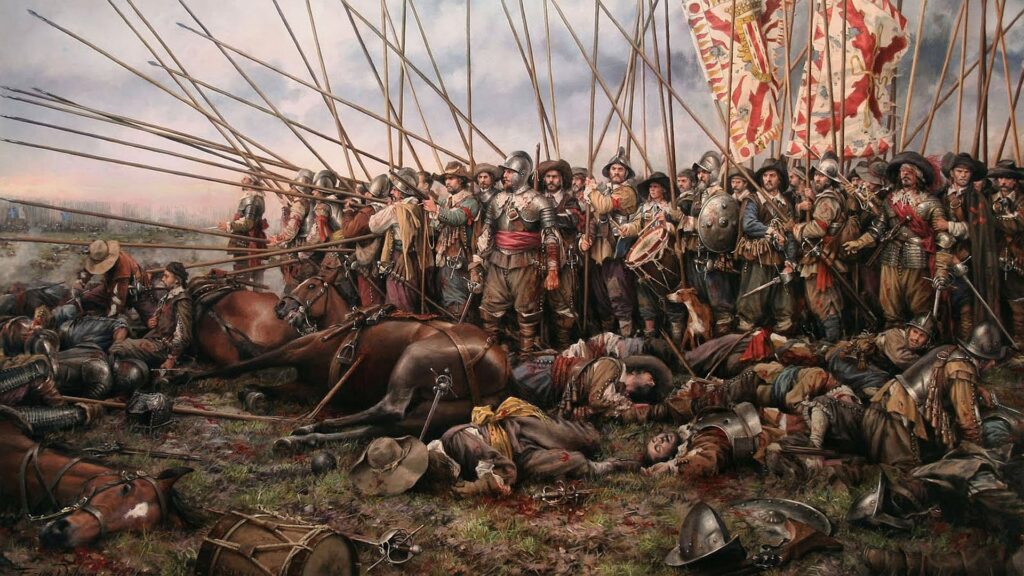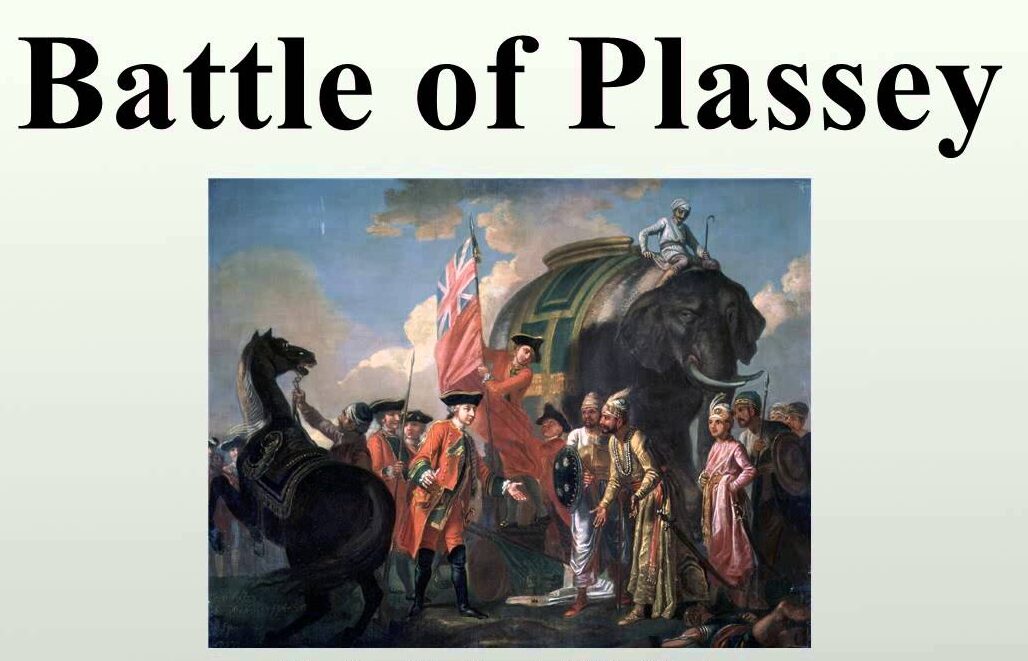The first truly crucial event in Indian history was the Battle of Plassey fought in the year 1757, which resulted in the British’s foothold in the Indian subcontinent and started a period of British domination in India. In this worksheet, we focus on the clash in detail and its consequences.
Introduction
The Battle of Plassey can be called the muted beginning of the establishment of British rule over India, which changed the Indian Power Dynamics to a great extent. It was as if something had snapped and the British East India Company seemed to be on the streak making India a colony.
Background of the Battle
The middle of the 18th century was a power struggle of Bengal where the Mughal Empire’s fall made space for the other group of individuals to rise and fill that void. The Nawabs of Bengal under this sort of condition are intrinsically located in a fragile position amid domestic discord and international aggression, that led to their being a vulnerable prey to European colonial interests.
Causes of the Battle
Several even factors had a role in provoking the Battle of Plassey, for instance, financial exploitation by the British, internal turbulence in Bengal, and the needs of the East India Company.
The East India Company’s Motives
Bengal, because of its abundant mercantile power and the wealth it possessed, was a major player in the competition. The East India Company, whose main motivation was building up interest in its trades and expanding its territorial sovereignty, made an effort to take over as well as dominate the lifeline to the region (i.e. commerce).
Forces Involved
The battle of Plassey was fought between the invading forces of Siraj-ud-daulah the Nawab of Bengal, and the British East India Company (EIC). The battle was won by Robert Clive the principal commander of EIC.
Prelude to the Battle
Siraj ud-Daulah’s relations with the Company have soured because of conflicting allegations on trade privileges and the East India Company’s construction of fortifications in Calcutta. Which in turn led to the very worst episode of Black Hole of Calcutta that turned the tide of interparty relationships even more fiercely.

The Battle Begins
The Battle of Plassey began on June 23, 1757, with the British side achieving strategic goals through diplomatic games and alliances. To the king of Bengal, Clive’s mission was a defection.
Tactics and Strategies
Robert Clive’s cunning approaches involving bribery and influencing the weaker side in the coalition paved the way for success for the East India Company.
As a result, it led to the battle
Numerically, Siraj ud-Daulah’s soldiers were so much more, but they were defeated steadfastly by Robert Clive’s troops, resulting in his capture and death sentence. The British forces won which in return made them take full control of Bengal and be a starting point of the British colonial rule in India.
Significance
This was, on the one hand, the battle that laid the foundation for British domination in the subcontinent. Beyond that, it inaugurated the process of British expansion and the consolidation of their power in India.
Legacy
The repercussions of the battle of Plassey can be found at every corner of Indian history as it represents a shackle and subjugation of the native powers by the Europeans.
Effects brought onto the Mughal empire
The loss of Siraj ud-Daulah had an impact on the Mughal Empire which was already in a shallow state of fading, so it was the main reason for its decline and eventually its extinction.
Historical Context
Knowing the Battle of Plassey against the background of the wide field of colonialism and imperialism also would furnish the many secrets of this significant issue.
Modern-Day Commemoration
Plassey becomes that symbol of unity, autonomy, and miracles, which symbolizes the fight for independence and the results of the British colonial rule.
Conclusion
Nevertheless, the Battle of Plassey has its special place, particularly in the history of India as the event is often considered to be the main strike or turning point in history which defined the course of two hundred years of colonialism and colonization of India.
FAQs (Frequently Asked Questions)
What was the significance of the Battle of Plassey?
The Battle of Plassey marked the beginning of British colonial rule in India and contributed to the decline of indigenous powers like the Mughal Empire.
Who were the key figures involved in the Battle of Plassey?
The main figures involved were Siraj ud-Daulah, the Nawab of Bengal, and Robert Clive, the British East India Company’s commander.
What tactics did Robert Clive employ to secure victory?
Robert Clive utilized bribery, diplomatic maneuvering, and alliances with rival factions to weaken Siraj ud-Daulah’s forces.
How did the Battle of Plassey impact the Mughal Empire?
The defeat of Siraj ud-Daulah weakened the Mughal Empire further, hastening its decline and facilitating British expansion in India.
Why is the Battle of Plassey commemorated in modern-day India?
The Battle of Plassey is commemorated as a reminder of India’s struggle against colonialism and the enduring impact of British rule.
What were the immediate consequences of the Battle of Plassey for Bengal?
The Battle of Plassey led to the establishment of British control over Bengal, resulting in economic exploitation and political subjugation.
How did the outcome of the Battle of Plassey affect the balance of power in India?
The British victory at Plassey shifted the balance of power in India, consolidating British influence and diminishing the authority of indigenous rulers.
What role did betrayal play in the outcome of the Battle of Plassey?
Betrayal by Mir Jafar, one of Siraj ud-Daulah’s commanders, who colluded with the British, significantly contributed to the Nawab’s defeat.
Did the Battle of Plassey lead to immediate British control over all of India?
While the Battle of Plassey marked a significant step towards British dominance, it took several decades for the British to establish control over the entire Indian subcontinent.
How did the Battle of Plassey impact future Indian resistance movements against colonial rule?
The Battle of Plassey catalyzed future Indian resistance movements, fueling nationalist sentiments and aspirations for independence from British colonial rule.

